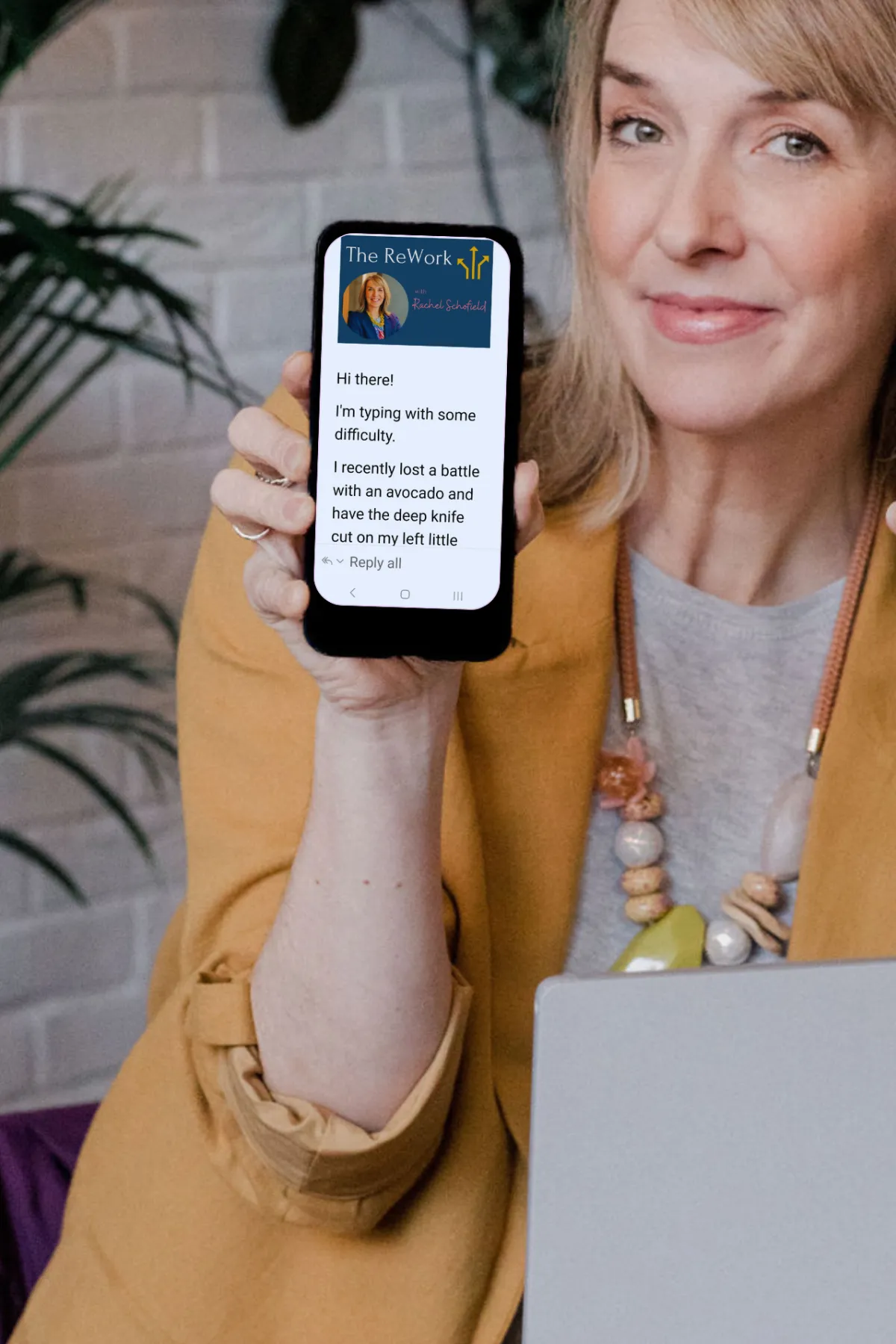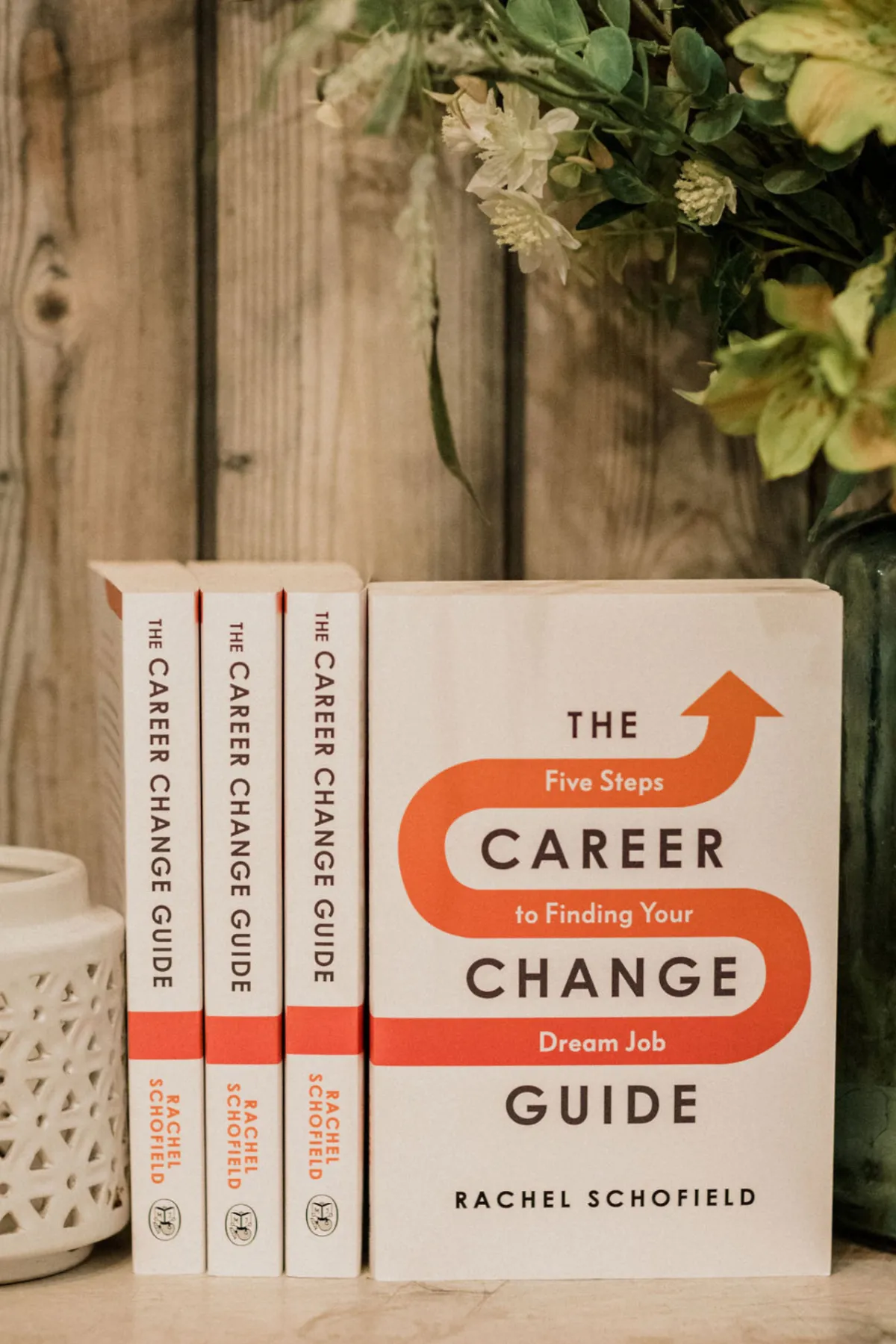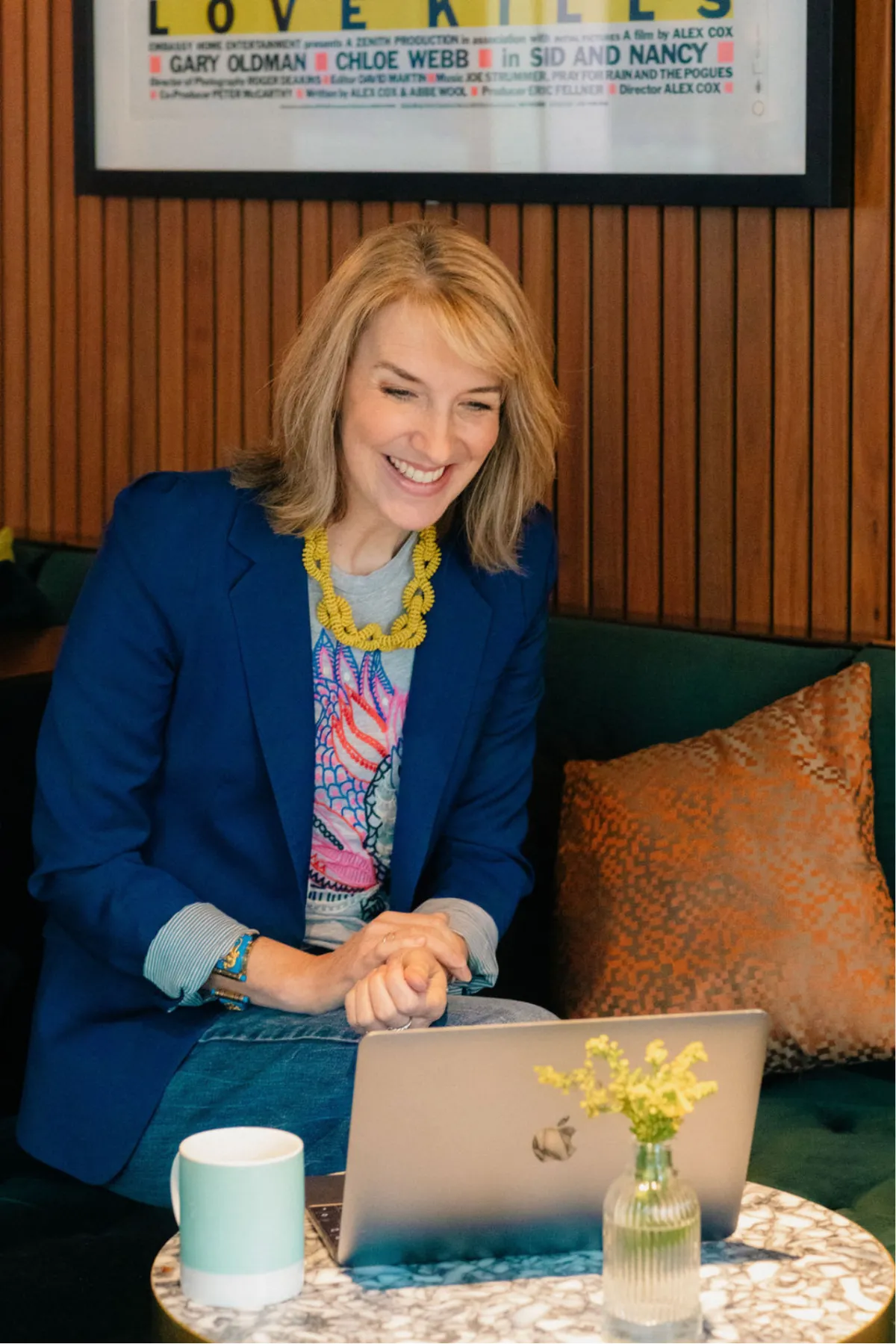Hi, I'm Rachel.
Challenging you to design and build the career you actually want.
Where you can thrive, grow and excel.
So tell me ... just how long have you been thinking about a career redesign?
A few months? A couple of years? A decade?!
Does the dream sneak up on you on holiday when your mind finally has time to wander? After a crappy day in the office when you’ve sold more pointless widgets and your ideas have gone unnoticed? When your surly teen rolls their eyes at yet another meal you’ve slaved over and you wonder if it’s time you went back to work? As you hit ‘Like’ on a friend’s LinkedIn post and notice an uncomfortable twinge of jealousy?
Here's what you're asking yourself ... is a fulfilling change possible or have I left it too late? do I have skills I can use elsewhere? should I stick with my familiar industry or reinvent myself? go for promotion or leadership? start up my own business? sign up to a course of study?
Round and round you go.
You’ve probably tried the patience of your partner and friends with your constant talk of change and your utter inability to take action.
So if you’re wondering how the study choices you made at 18 have led you down a career path you feel you never really chose . . . if you’re reassessing your future now you’re a parent with new priorities and different ambitions . . . if you’re sensing an opportunity to reinvent yourself as your kids are growing up and it’s finally ‘you’ time . . . if the global pandemic has shaken your world and is pushing you towards change.
If this is you, you’re in the right place …
FED UP OF BEING TOLD TO JUST
"FOLLOW YOUR PASSION"??!!
GRAB MY FREE "7 WAYS TO EXPLORE YOUR PASSIONS" WORKSHEET.
DISCOVER THE WORK THAT WILL ACTUALLY MAKE YOU FULFILLED AND MOTIVATED
{SPOILER ALERT: passion isn't always what it seems. Never take career advice from a fridge magnet}
Let's work together to help you ...
Get Total Clarity
on who you are and the kind of work and life you truly want
Devise and Explore
a range of career options so you are confident you're making great choices
Build an Action Plan
so you have the concrete steps and strategies to move you forward
Share your Story
so you come across powerfully in your CV, LinkedIn and at interview
"Some ideas, like what you're going to do with your life, take time to form"
Cate Blanchett
What level of support do you want?
Start slow or dive right in. You choose!

Join the 2000+ people getting a regular shot of career inspiration, advice and storytelling from my newsletter
"The ReWork"

Get my free mind-expanding worksheet
"7 Ways to Explore Your Passions"
(and see why passions aren't everything)

Get a super practical
five step guide to a successful shift with my book
"The Career Change Guide",
published by Penguin

Work with Me
for personalised support.
Let's figure out your next career chapter and the actions you need to make it happen
What My Clients Say
As a result of working with Rachel, I have developed a sense of how I want to work, I have recognised the skills and abilities I had before becoming a mum and I have been coaxed into taking very proactive steps in moving myself forward.
Rachel has helped me identify that I am probably the biggest advocate for my own limitations and that I can actually flip that around and advocate for my own unique strengths.
MG, TV producer
I came to coaching because I was lacking the motivation to change my situation and that had left me feeling slightly trapped. Rachel helped me rethink my options. I feel far more positive and open-minded about the best path forward and as a result have applied for jobs that I may not have had the courage to apply for previously. Most of all, coaching has helped me understand myself better ... and the direction I should steer my career to allow me to be happier and more fulfilled.
SP, Lawyer
Coaching has given me the opportunity to assess myself and what I want from the future - and then taught me the skills to make that a reality. It helped me realise my insecurities can be overcome.
Rachel helped me set clear achievable goals and identify any obstacles that may get in the way of me reaching them. It was incredibly helpful to have Rachel's support, positivity and encouragement.
AW, Market Research Consultant

